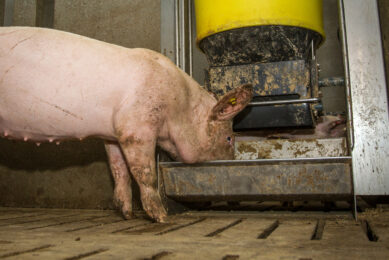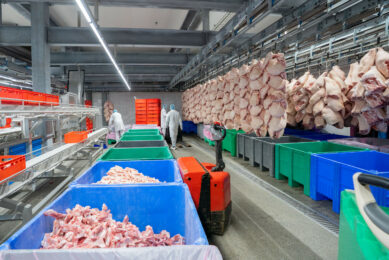Bayer Satellite Symposium at IPVS
Continued population growth, shrinking areas of land available for agriculture and changed eating habits – what effects will these global trends have on the agrarian economy of the future? And what consequences will they have for pig production and the work of livestock veterinarians?
These and other questions will be tackled at the public satellite symposium of Bayer HealthCare’s Animal Health Division at the 20th World Congress of the International Pig Veterinary Society (IPVS), to be held from June 22 to 26, 2008, in Durban, South Africa.
Global scenarios
Dr. Manfred Kern, Head of International Business Relations at Bayer CropScience AG, will talk about global scenarios in the context of the world economy and population development over the next 20 years in a presentation on Tuesday, June 24, from 11:15 a.m. to 12:45 p.m. Here is a summary of the main topics:
Global agriculture must increase by more than 60 percent by 2025 if it is to keep pace with population growth, urbanization, changed eating habits and the rising demand resulting from the increase of purchasing power.
More than 853 million people today are suffering from malnutrition or hunger, and their number is rising. More food will have to be produced worldwide in the next 30 years than in the entire preceding 10,000 years.
Consumers
Current emerging markets such as China with approximately 1.4 billion consumers and India with some 1.3 billion consumers will switch from a predominantly plant-based diet to a more animal-based one. Pro rata meat consumption in China will rise from about 40 kilograms at present to 60 kilograms by 2020. In India, pro rata consumption will triple from two kilograms at present to six kilograms in 2020.
At present about 30 to 40 percent of the available agricultural land is used for growing cereals for the production of basic foodstuffs, and the rest is used for the production of animal feed. This will change drastically by 2025: about eight to 12 percent of the land available worldwide will be required solely for the production of food for pets (dogs and cats), 20 to 30 percent will be used for renewable raw materials, about 30 percent for basic human foodstuffs and the remaining land for the production of livestock feed.
Global agriculture, thanks to its resources and technical possibilities, has the quality to meet the multifaceted national, regional and global challenges in sustained fashion.
Bayer HealthCare’s Animal Health Division is a sponsor of the 20th World Congress of the International Pig Veterinary Society (IPVS). Participants can attend numerous specialist lectures and presentations to receive sound information about the current situation and future developments in the various areas of pig health.
Related website
• IPVS
• Bayer Healthcare
Subscribe here to the free Pig Progress newsletter











